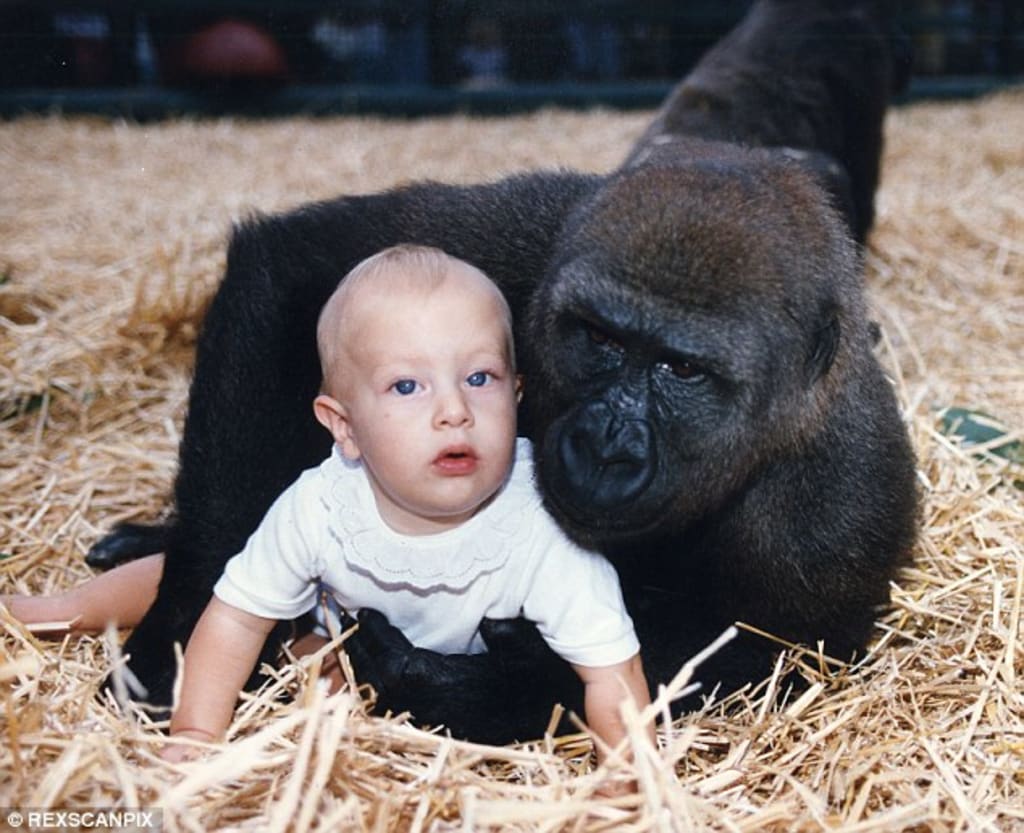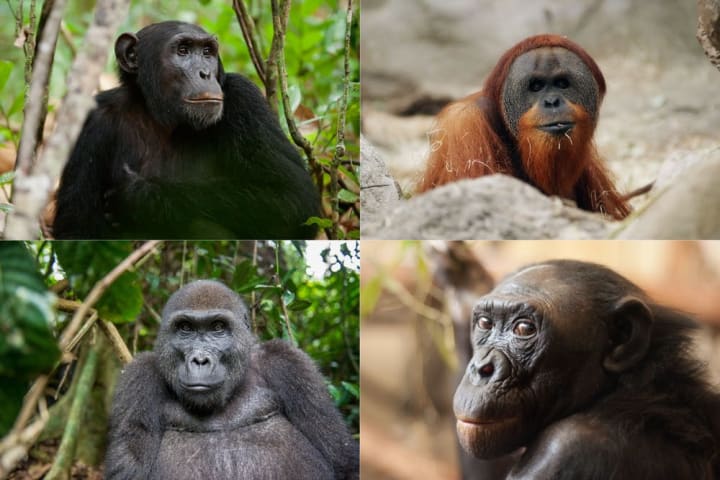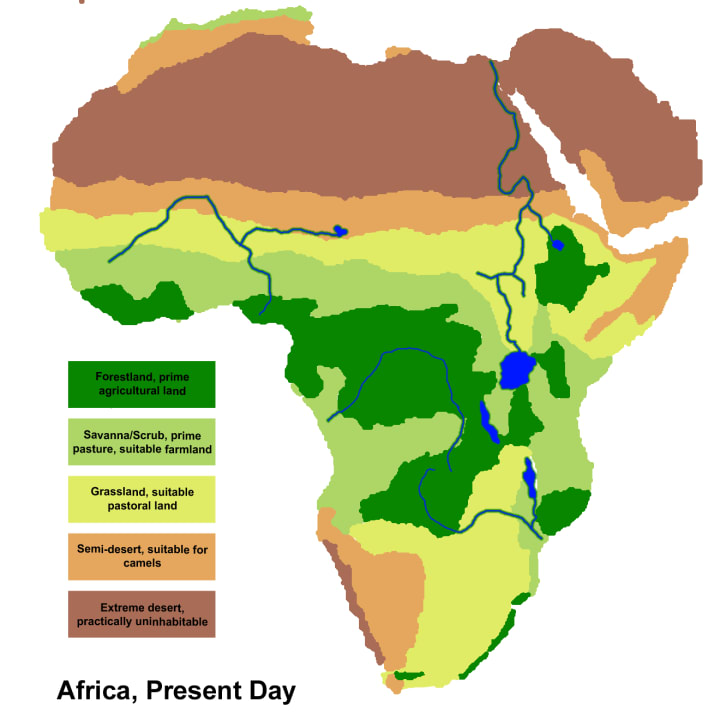Comparing Apes to Early Hominins
An Exercise in Futility

Sociologists, anthropologists, psychologists, and other scientists often use data collected by field researchers to draw comparisons between humans and apes. Jane Goodall's research with chimpanzees is legendary. Diane Fossey researched gorillas. Primate centers from around the world have given us reams of data—enough to last several lifetimes of compilation. Their groundbreaking research gave science all it needed to interpret this data to model early hominin evolution, instead of seeing it for what it was: a detailed view of ape life today. The data is valuable in that we now know apes almost as certainly as we know ourselves. The problem is, it is often used to extrapolate "facts" about the LCA (last common ancestor). The truth is simple; apes have been evolving for 5-8 million, as have we. Apes bear no more resemblance to the LCA than we do. We don't think the LCA had agriculture, architecture, or dashing commuters, so why do some researchers insist that apes give us insight to early hominins? Apes are not primitive. They are the current apex of their individual species, as we are of ours. It took millions of years for apes to get where they are. We evolved to speak, walk on two legs, and see the abstract. They evolved to be quadrupedal tree climbers that can live in their environment without destroying it.
The Great Apes

(Top left) A chimpanzee (top right), an orangutan, (bottom left) a gorilla and (bottom right) a bonobo. ...
The data collected by primate researchers aren't useless, but it isn't useful to compare ape behaviors to humans, or our ancestors. They cannot extrapolate the socioeconomics of the LCA from data that took millions of years to evolve. Isn't it just as impossible as applying human behaviors today to the behaviors of the LCA? Behaviors develop over time. Chimps have a hierarchy with alpha males and females. Some might say we do too, but it isn't quite the same. The alpha roles change over time in humans and in different cultures. Today's alpha male might be the nerd who makes big money as opposed to a Ricky Nelson type of the 1950s. The alpha male in rural Tennessee will not be the same as one from Los Angeles. Women no longer went through estrus. That had a huge effect on group dynamics. Males would probably be driven to a higher level of competition if females weren't bending over every time a male wanted sex. Researchers use foraging times of chimps as well as energy expenditures to determine how our LCA foraged and consumed energy. This is unfathomable when chimps live in a dense forest and we aren't yet positive about the environment the LCA lived in.
African Biomes

One thing we don't have are ape fossils to see how they evolved. The environments where the great apes live are not conducive to fossil preservation. Without preserved fossils of early apes, we cannot know the whole picture. Perhaps a new find will alleviate that issue. The LCA has not yet been found. We do know a few things about the LCA. Australopithecines and Ardipithecines were small-brained, so it is a very safe assumption that the LCA was as well. The LCA walked on two legs at least 50 percent of the time. Otherwise, why would it have spawned both quadrupeds and bipeds? They were small in stature. They probably had teeth larger than ours, but smaller than apes. They had reduced canines. The apes bent down to more easily cling to trees. We stood up because something in our environment made that happen. Chimps and humans evolved in different biomes. The LCA presumably had traits more or less between ape and human so that it branches into either. They may have lived in troops, but separate families living clustered as we have today? Probably not. Whatever the LCA had to offer will remain in the shadows of the unknown until we find one.
About the Creator
Monica Bennett
I am a retired high school and college teacher. I have taught forensics, biology, chemistry, ecology, and Earth science.. Long Island has been my home for 60 years.






Comments
There are no comments for this story
Be the first to respond and start the conversation.